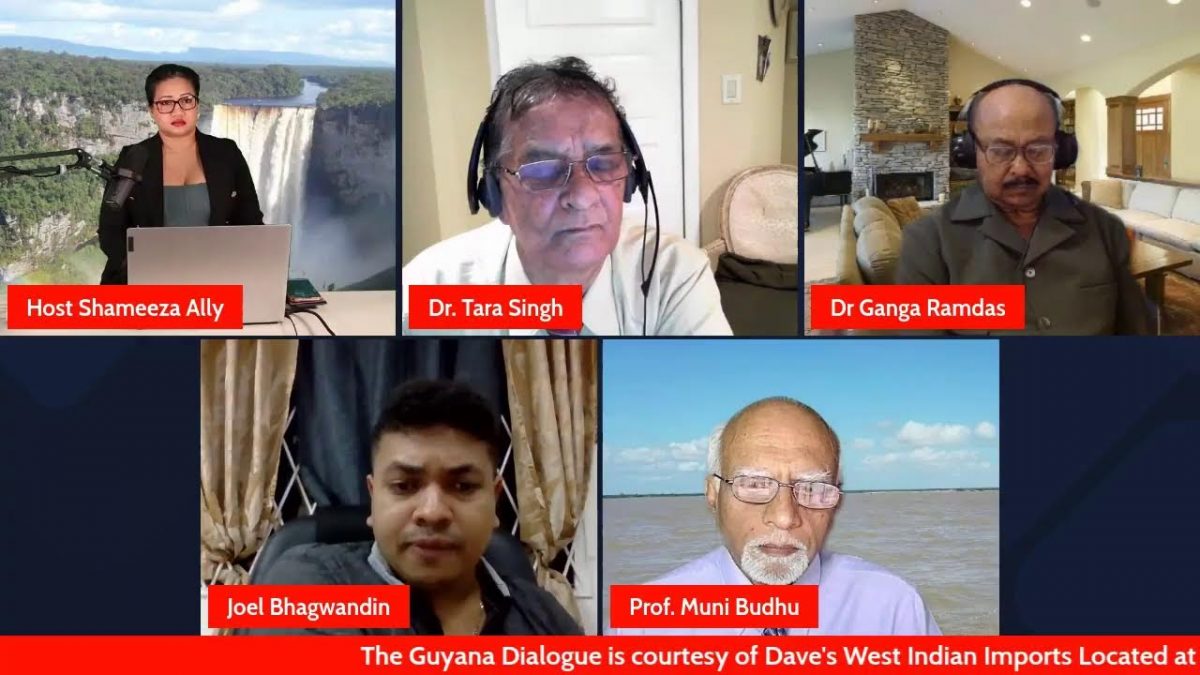Dear Editor,
Contractors’ transgressions from failure to start contracted works to inferior quality construction (e.g., “Edghill terminates El Dorado Road contract -after contractor fails to start work “, SN, Jan 14, 2023; “Likely poor design caused crumbling of Burma Road”, KN, Jan 11, 2023; “Tenders for security services and others”, KN, Jan 27, 2003; “Poor work being executed on the Parika-Hubu road”, SN Oct 12, 2022) continue to plague the many transformational infrastructural works undertaken by the PPP/C government. Why do these transgressions, described in the Auditor’s reports 2019, 2020 (projects under the previous government), almost weekly media reports, letters from professionals and citizens in newspapers, citizen and Government officials’ verbal complaints captured on video footage and distributed on social media, continue unabated?
The PPP/C government clearly wants to fulfill its manifesto’s promises to the people. To do so it has embarked on constructing, rebuilding, and repairing a myriad of roads, bridges, hospitals, schools, government services’ buildings, and energy generating plants (e.g. the gas-to-shore facility). In addition, the government approved construction of new hotels, commercial and residential buildings. Some of the latter are undertaken by the government to meet its manifesto’s obligations.
Guyana, an impoverished nation just prior to oil and gas discoveries and production, and the current government, is in a transitional economic state. To undertake just the ongoing construction works requires multiple planning, design, construction, and management skill sets. It seems obvious from the President and various Ministers’ regular remonstrations, when visiting construction sites, that these skill sets are absent or, at least, deficient. The scale of infrastructure developmental projects is incongruent with the available technical human resources. In conventional civil engineering practice, the transgressions that have been noticed, agonized, and handled by the President and various Ministers are dealt at the project engineer’s level, many levels below a ministerial position.
After a policy decision is made, the process for construction works such as a road requires conceptualization, planning including economic viability, feasibility studies, engineering design abiding by codes and standards, specifications, contracting, project management and quality control. This process, if carried out efficiently and effectively, leads to value – getting your money’s worth. The policy decision is a political one, but the process is completely technical. A politician should never micromanage the process, even if he/she is technically qualified. The complaints that arise indicate that the process is seriously flawed.
Where are the flaws? The answer requires a comprehensive study beyond this newspaper letter. However, from the reported transgressions, there are two areas – contracting and project management – that are obviously dysfunctional. The National Procurement and Tender Administration (NPTA) (https://www.npta.gov.gy/) processes contracts according to the Procurement Act (2003). Two types of contracts – open and sole source – are described and administered by NTPA. For details of these contractual types, the reader is advised to check out the NPTA’s website given above and the Guyana Dialogue’s event on January 12, 2023 (https://www.youtube.com/watch?v=fTbxzfK_tAQ; https://www.theguyanadialogue.org) for an overview. The NPTA‘s procedure follows international standards for transparency, non-discrimination, and meritocracy.
Many of the delinquent and derelict contractors were awarded contracts based on the open process. Under this process, the contract is awarded to the contractor who meets the minimum qualifications and the lowest price. A bidder with the lowest price who does not meet the minimum qualifications is a loser. This is standard international practice and not only a Guyanese practice. The winner is required to produce acceptable current evidence of qualifications and finance before awarded the contract. Sole source contracting is used when specialized or best-in-class skills or equipment or a particular commodity is required. Often, sole source contracting is associated with allegations of corruption.
So, why did these contractors default? Are the qualifications, which include among other requirements experience on similar projects, adequate human resources, and equipment, too low or not rigorously evaluated? Is the evidence of qualifications and finance not meticulously validated? Again, these answers require investigative reporting beyond this newspaper letter.
Regardless of the outcome of the contracting process, it is the Government’s responsibility to ensure that public projects are managed to satisfy the design (embedded in engineering drawings and specifications), quality and cost. It is the writer’s opinion that the crux of the problem lies in project management (“Ali administration urgently needs contract management for planned infrastructural boom,” SN Jan 7, 2022). It is not the citizen’s responsibility to report on a contractor’s default, nonperformance, or noncompliance. In fact, calling on citizens to report on contractors’ blunders or malpractices is detrimental. Projects must be professionally managed by experienced, technical staff. As alluded to earlier, the Government lacks the required technical human resources, or some technical staff are corrupt, or both. In addition, a master infrastructure developmental plan (blueprint), building codes and Standards are woefully absent.
It is commendable that the Government under the leadership of President Ali has embarked on the numerous infrastructural works to transform Guyana. The legacy of these works in improving the lives and livelihood of Guyanese requires value engineering. Quality project management is a key mechanism through which value can be realized. One way to stem the contractors’ transgressions is to fast-track training in project management, state-of-the-art technology tools for project management, training and certification of contractors.
Yours faithfully,
Dr. Muniram Budhu
Professor Emeritus






